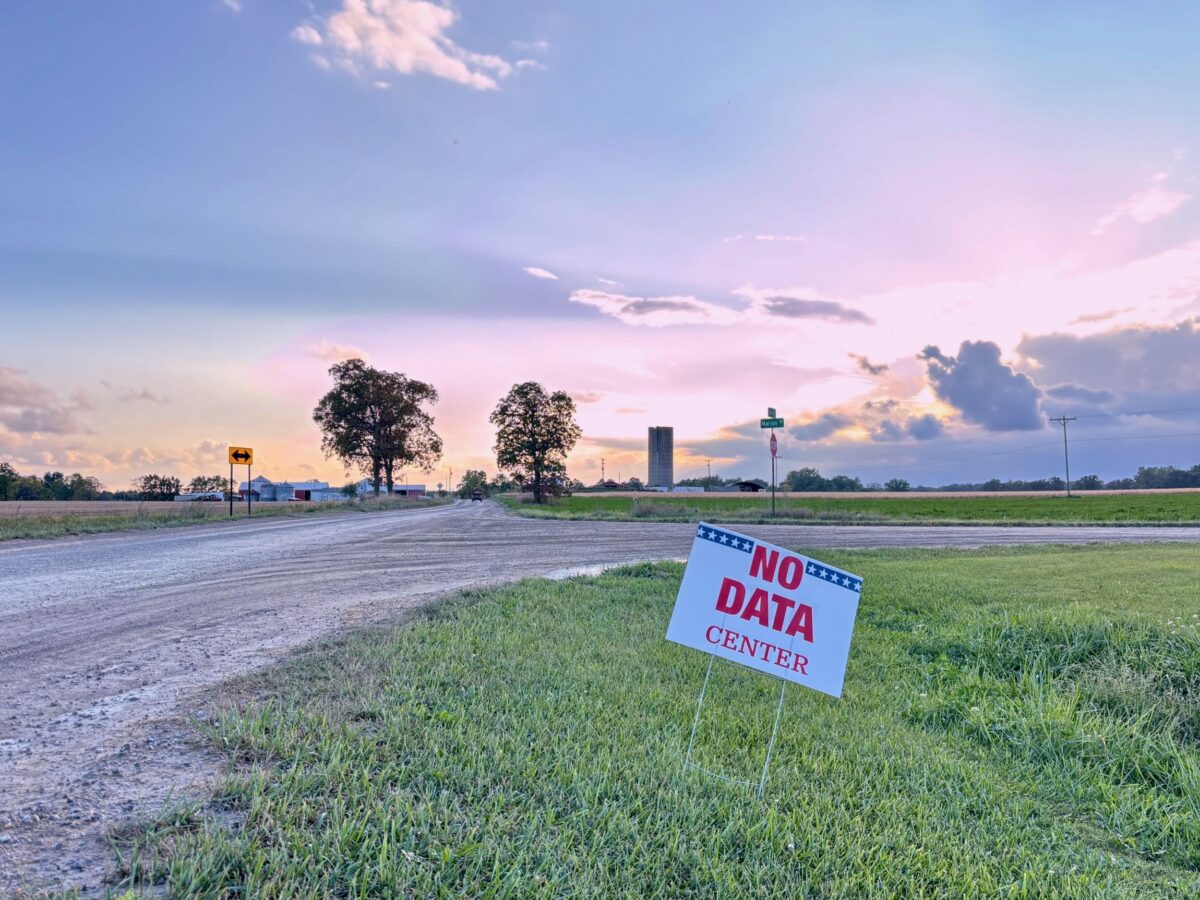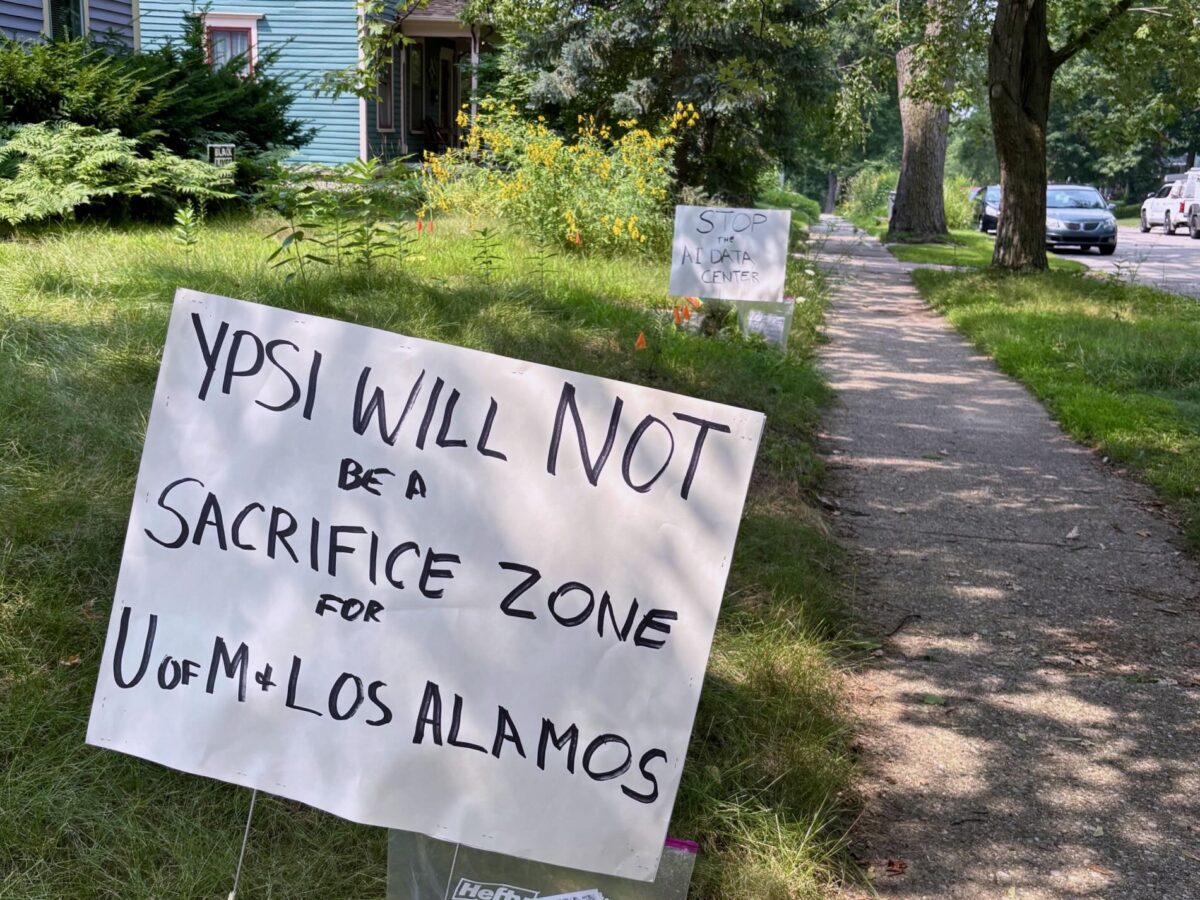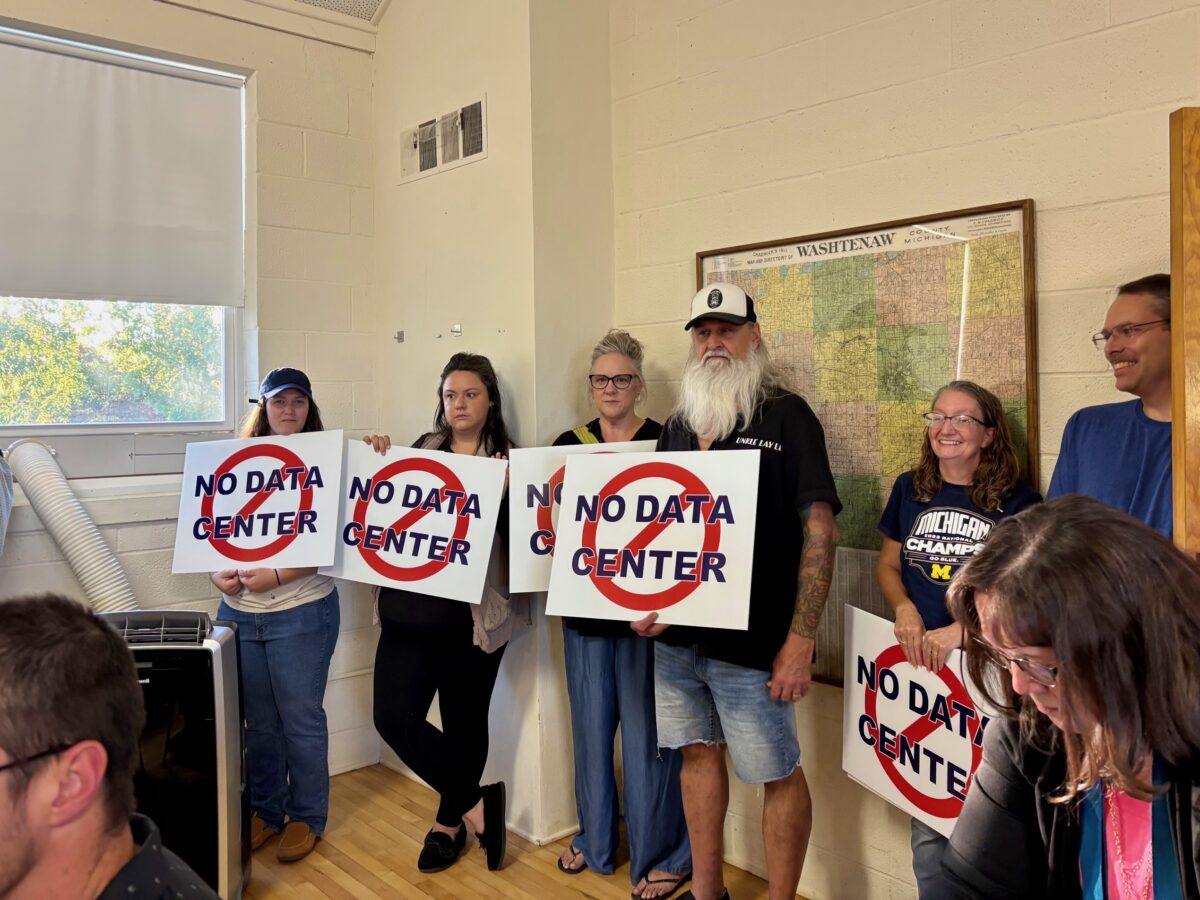Overview:
- Howell Township Planning Commission meeting stretches seven hours with data center proposal up for consideration.
- Artificial intelligence technology is largely driving data center growth.
- The Livingston County Planning Commission has 30 days to weigh in, and the Howell Township board has final say, assessor tells Planet Detroit.
The Howell Township Planning Commission voted unanimously against rezoning land for a massive data center Tuesday night, following a seven-hour meeting with hundreds of reported public comments.
The project, from developers Stantec Consulting Michigan Inc. and Randee LLC, would occupy a 1,077-acre site of largely agricultural land north of I-96, roughly 54 miles from Detroit.
Many of those who spoke at the public meeting expressed concerns about data centers’ impact on water resources and electricity costs, WDIV reports.
A change.org petition titled “Stop the Construction of Michigan’s Largest Data Center in Howell” has collected 2,145 signatures.
In its conditional rezoning request, Randee said the $1 billion data center would bring in 1,000 temporary construction jobs and would “likely generate more tax revenue than many of the largest taxpayers in Livingston County combined.”
Howell Township board has final say on data center
Public officials and data center experts say cool weather, water, and Michigan’s recently passed data center tax breaks are encouraging more facilities to come to the state. Artificial intelligence technology is largely driving data center growth.
Data centers’ often massive water and energy needs raise concerns about impacts to Michigan’s water resources, energy prices, and climate goals. Power demand from data centers could trigger an off-ramp provision in the state’s climate law, allowing fossil fuel generation to stay online if there’s a capacity shortage.
The planning commission’s recommendation to deny rezoning for the data center is not the last word on the project. The Howell Township Board of Trustees has the final say, Howell Township Assessor Brent Kilpela told Planet Detroit.
In July, the Augusta Township board voted to rezone 522-acres for a data center, after the township’s planning commission voted against it. The board’s decision sparked a ballot drive, which successfully collected the necessary signatures to put the rezoning question to Augusta Township voters in a future election.
If a township board votes to deny rezoning for a data center, it may not kill a project.
Earlier this month, the Saline Township Board of Trustees voted against rezoning 575 acres of agricultural land to make way for a data center. Days later, property owners and a LLC associated with developer Related Digital sued the township, alleging exclusionary zoning, which is barred under the Michigan Constitution.
The Livingston County Planning Commission has 30 days to offer its own recommendation on whether to rezone land for the data center, township assessor Kilpela told Planet Detroit. This means the Howell Township board likely won’t weigh in on the matter until its Nov. 10 meeting, at the earliest.
🗳️ Civic next steps: How you can get involved
Why it matters
⚡ Data centers have large energy and water demands that environmental advocates argue could jeopardize Michigan water resources and state climate goals.
Who’s making civic decisions
🏛️ The Livingston County Planning Commission will make a recommendation on the rezoning land for the data center within the next 30 days. The Howell Township Board has the final say on whether to approve rezoning for the facility.
How to take civic action now
- 📅 Attend Livingston County Planning Commission monthly meetings and Howell Township monthly board meetings.
- 📞 Contact the Livingston Planning Commission by phone or email.
- 💻 Contact Howell Township board members.
- 📩 Read Planet Detroit’s data center coverage.
What to watch for next
🗓️ The Livingston County Planning Commission is expected to make a recommendation on the data center rezoning within the next 30 days. Check the Howell Township board meeting agendas to see when it will consider the issue.
⭐ Please let us know what action you took or if you have any additional questions. Please send a quick email to connect@planetdetroit.org.
MORE REPORTING ON DATA CENTERS
Attorneys sketch out Saline Township’s options in data center fight
Threat of monetary damages adds to risk for rural township fighting data center.
Washtenaw communities fight data center developments: ‘Not soft touches’
Data center proposals in Washtenaw County force local officials to weigh in on massive developments that could bring significant local tax revenue — and transform rural landscapes.
Data center developer takes Saline Township to court over rezoning decision
Saline Township board’s denial of rezoning of farmland for data center project comes after outpouring of resident concerns over noise, traffic, and environmental impact.





